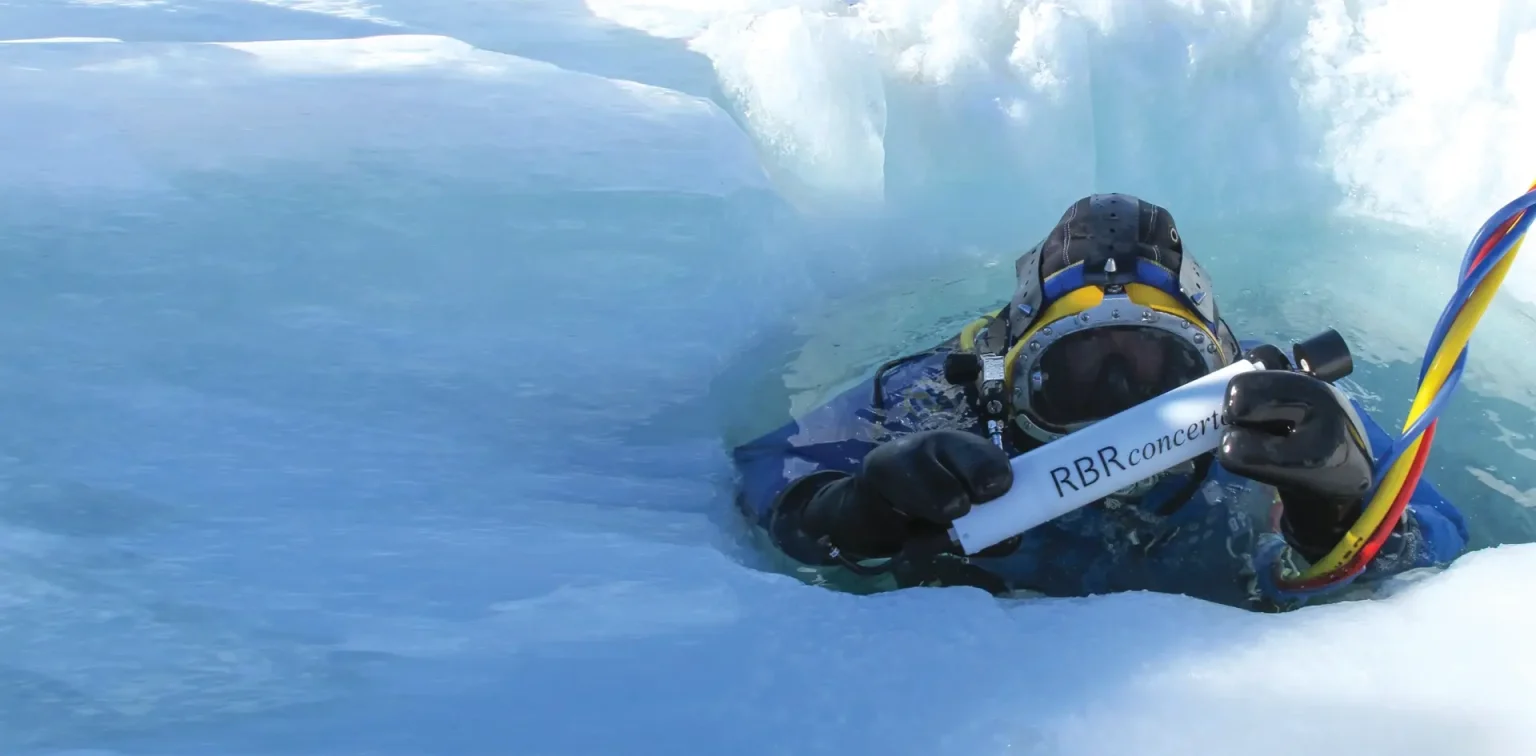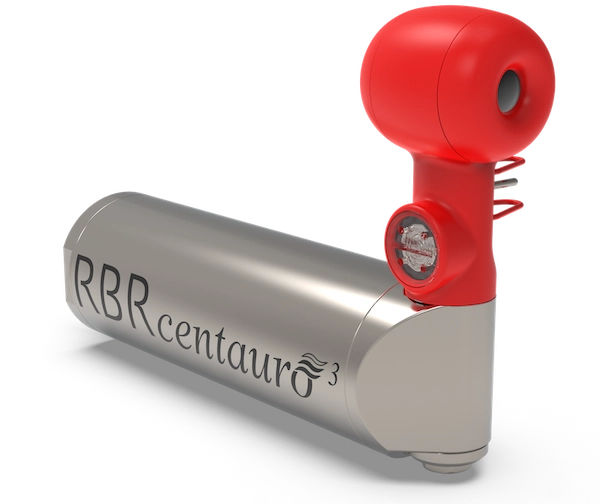Low power consumption
RBRcentauro³ C.T.D
Multi-channel instrument for gliders and AUVs
The RBRcentauro³ offers a new world of measurement opportunities for gliders and AUVs in deep water. Optimised for vehicle integration applications, the instrument requires no pump to obtain fine structure measurements. The RBRcentauro³ provides high accuracy while consuming less power due to modern electronic design and the lack of moving parts.
- Rated to 2000dbar
- Pump-free design with optimized flow dynamics
- Ultra-low power consumption
- Up to 2Hz sampling
- Accurate conductivity to within 10cm of the air-ocean interface
- Unaffected by surface contaminants or freezing conditions
Downloads
RBR Instrument Guide: RBRcentauro³Features & Configurations
The RBRcentauro³ measures conductivity using a transverse CTD designed to endure harsh conditions. The CFD-optimised, low aspect ratio conductivity cell is self-flushing and does not require a pump. Datasets can be read directly in Matlab, or exported to Excel, OceanDataView®, or text files.
The RBRcentauro³ design is optimised for gliders and AUVs. The CTD is used to derive salinity, density, and sound velocity. The instrument ensures totally silent operation allowing for passive acoustic listening and turbulence measurements. Power consumption is 90% lower than that of traditional pumped CTD sensors and allows for substantially longer deployments. The RBRcentauro³ is unaffected by surface contaminants or freezing conditions, comes pre-calibrated to account for static conductive elements, and is rated to 6000m.
About the sensors
Conductivity is measured with an inductive sensor, suitable for deployment in marine, estuarine, or fresh water. There are no exposed contacts, which increases robustness, avoids susceptibility to surface contamination, and allows it to be frozen into ice without damage.
The temperature sensor is built and calibrated in-house using an aged thermistor. The temperature channel is calibrated an accuracy of ± 0.002°C (ITS-90) over the range -5 to +35°C. Extended range calibrations are available.
Pressure is measured with a piezoresistive transducer built with a nickel-based superalloy diaphragm to avoid corrosion. Accuracy is 0.05% of the full-scale rating and resolution is 0.001%.
Optional configurations
| Design integration | For installation in wet sensor bay |
|---|---|
| Depth rating | 2000dbar |
| Available sensors | Conductivity (C), Temperature (T), Pressure (D), Optical Dissolved Oxygen (ODO), Photosynthetically Active Radiation (PAR), Radiometer (rad), Turbidity (Tu), Backscatter (bb), Chlorophyll a, Fluorescence (Fl), pH |
Specifications
| Storage | 240M readings |
|---|---|
| External power | 4.5-30V |
| Communication | RS-232 |
| Clock drift | ±60 seconds/year |
| Housing | Titanium |
| Diameter | ~60mm |
| Length | ~206mm (instrument only) ~254mm (with connector) |
| Height | ~146mm |
| Power | 8 AA cells (24Wh-60Wh nominal) |
| Weight | ~1600g in air ~950g in water |
| Max depth rating | 2000m |
| Range | 0-85mS/cm |
|---|---|
| Initial accuracy | ±0.003mS/cm |
| Typical stability | 0.010mS/cm/year |
| Resolution | <0.0001mS/cm |
| Range | -5°C to 35°C |
|---|---|
| Initial accuracy | ±0.002° |
| ±0.004 °C (+35 to +42 °C) | |
| Resolution | <0.00005°C |
| Time constant | <1s |
| Typical stability | 0.002°C/year |
| Range | 2000dbar |
|---|---|
| Initial accuracy | ±0.05% full scale |
| Resolution | 0.001% full scale |
| Time constant | <0.01s |
| Typical stability | 0.05% full scale per year |
| ≤1Hz sampling | 22.8mJ per sample |
|---|---|
| 2Hz sampling | 46mW |
| Sleep power | 180µW |

